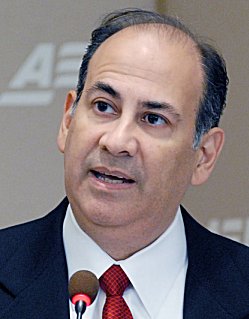 Argentina’s economic difficulties are once again making headlines given the significant drop in its bond prices and economic numbers that continue to worry investors. As reported by the Wall Street Journal on January 12th, “…[Argentina’s] government bonds have fallen sharply over the past week, as a deep drop in the value of the peso and dwindling foreign-exchange reserves are raising questions about the country’s ability to pay future debts.”
Argentina’s economic difficulties are once again making headlines given the significant drop in its bond prices and economic numbers that continue to worry investors. As reported by the Wall Street Journal on January 12th, “…[Argentina’s] government bonds have fallen sharply over the past week, as a deep drop in the value of the peso and dwindling foreign-exchange reserves are raising questions about the country’s ability to pay future debts.”
An analyst for Prudential Fixed Economy told the Journal, “Things are taking a turn for the worse in Argentina. The government is unable to control the peso.” Bond investors are alarmed that the weakening peso will lead to further decline in the country’s foreign-exchange reserves, used to pay debt, as the country will have to pay more for imports, exacerbating inflation and depleting reserves. (Argentina already has one of the highest inflation rates in the world, around 25 percent.) With foreign reserves plunging to their lowest level in more than seven years, Argentina is due for some $8 billion in bond payments and interest in 2015.
In 2001, Argentina’s inability to pay its debtors triggered the largest sovereign default in history ($132 billion), sparking a political crisis that caused the resignation of five presidents in less than 10 days and an economic contraction of nearly 30%. The economic free-fall was halted by the intervention of the International Monetary Fund, and increased commodity prices have improved the economic picture in recent years.
However, president Cristina Fernández de Kirchner and her predecessor and husband, Nestor, failed to even try to remedy the root causes of the crisis. On the contrary, their populist policies have stunted Argentina’s economic growth by overtaxing productive sectors, discouraging foreign investment, and undermining democratic institutions. This unreconstructed Peronism could be leading Argentina into a second recession and renewed political turmoil.
My colleague José Cárdenas and I warned about “Argentina’s Race to the Bottom” in a March 2013 research paper for the American Enterprise Institute. We wrote then, “Economic policymaking under [the Kirchners] has been a riot of statist, interventionist initiatives that have undercut the private sector at every turn and dashed any hopes for long-term prosperity.”
To date, there has been no indication that President Kirchner intends any course correction for the Argentinean economy. Apparently, many in the country have concluded that it’s time for a change in direction for the country. In last October’s congressional elections, Kirchner’s slate of candidates failed to attain a majority in Congress, which was widely interpreted as a sign of growing popular opposition to her reckless management of the economy.
With the national catastrophe of the 2001 default still fresh in the minds of many Argentines, President Kirchner would do well to heed their voices to avoid re-living that nightmare. The October 2015 presidential elections can’t come soon enough.
Source: AEI Ideas











Discussion
No comments for “Argentina’s economy: Back to 2001? – by Roger Noriega”